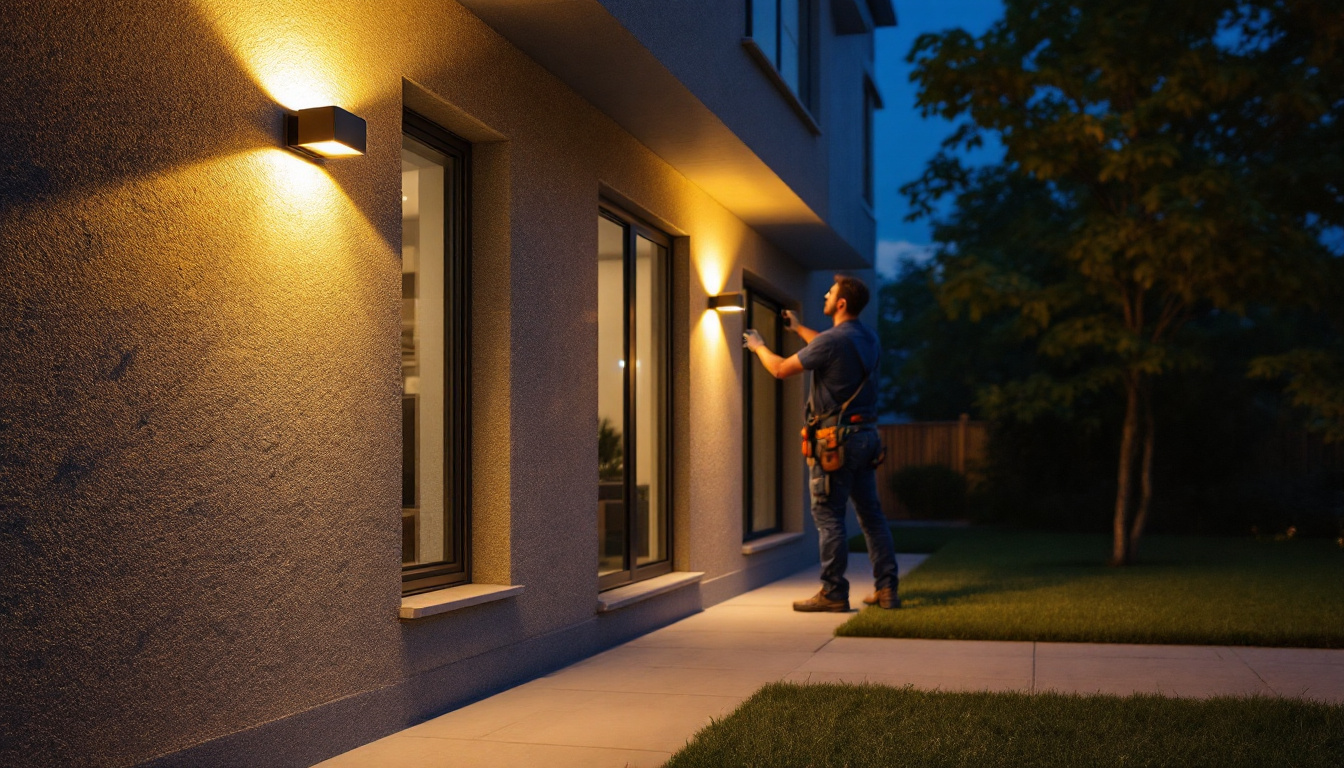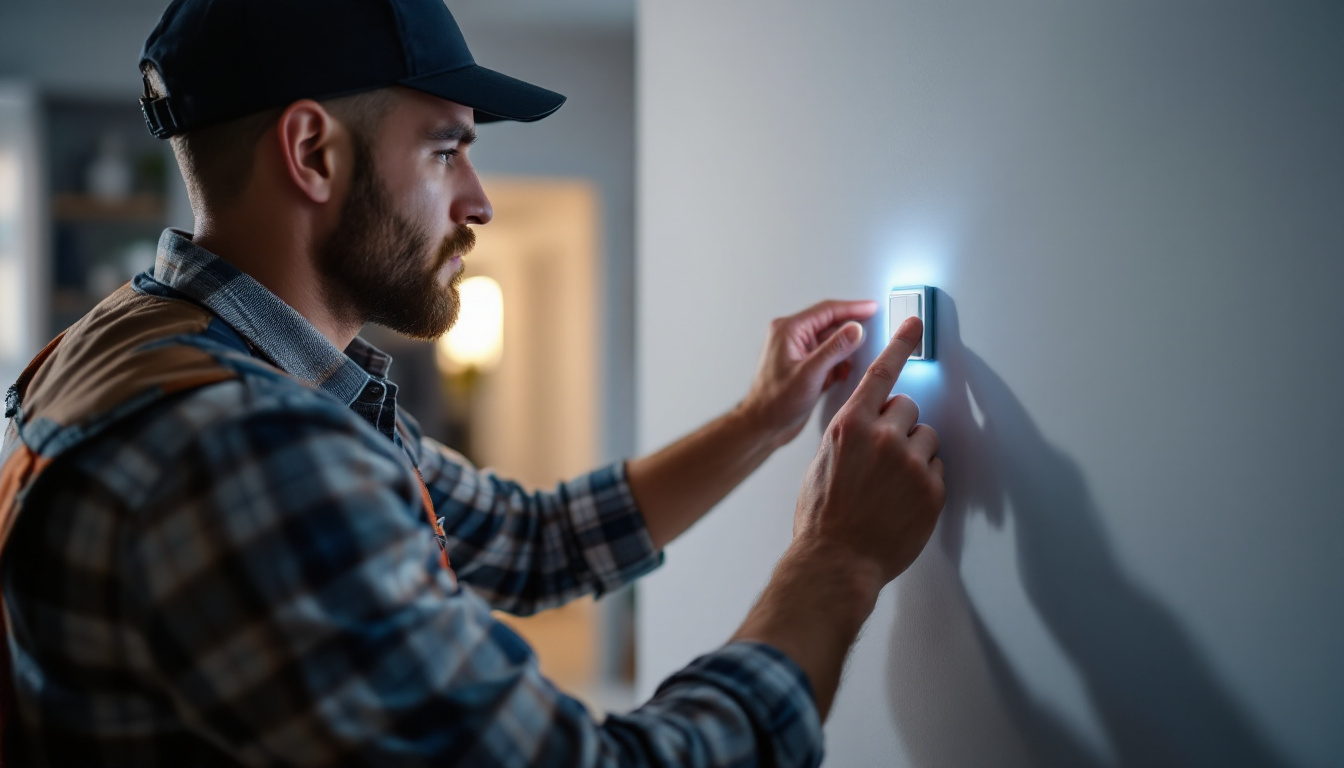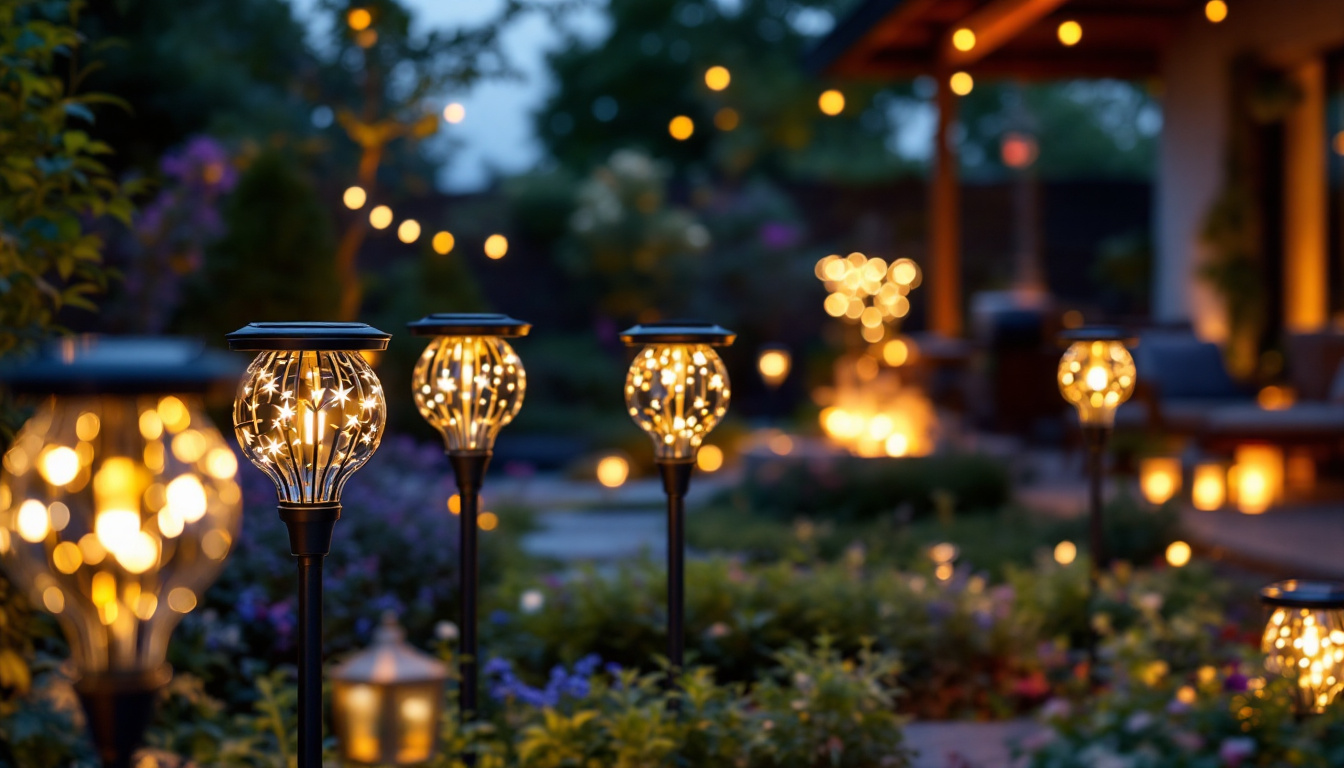
As the demand for renewable energy solutions continues to rise, solar security lamps have emerged as a popular choice for both residential and commercial applications. However, while the benefits of these lamps are clear, many lighting contractors often make common mistakes that can compromise the effectiveness and longevity of their installations. Understanding these pitfalls is essential for delivering quality service and ensuring customer satisfaction.
Before diving into the common mistakes, it’s crucial to grasp the basic principles of solar technology. Solar security lamps harness energy from the sun, converting it into electricity to power LED lights. This process relies on several components, including solar panels, batteries, and LED fixtures. Each element must work harmoniously to ensure optimal performance. The efficiency of this system can be significantly influenced by factors such as geographic location, seasonal variations, and even the angle at which solar panels are installed. Understanding these variables can help users maximize the benefits of solar technology, ensuring that their security lighting remains reliable and effective throughout the year.
One of the most frequent errors made by lighting contractors is selecting subpar solar panels. The efficiency of a solar panel directly impacts the amount of energy it can generate. Contractors should prioritize panels with high efficiency ratings and durability to withstand various weather conditions. A poor-quality panel can lead to insufficient energy production, resulting in dim or non-functional lights. Additionally, it’s essential to consider the warranty and manufacturer reputation when selecting solar panels, as these factors can indicate long-term reliability and performance. Investing in reputable brands may come with a higher upfront cost, but the long-term savings and peace of mind can be well worth it.
Another critical aspect is the choice of batteries. Many contractors underestimate the importance of battery capacity and type. Using batteries that are not suited for solar applications can lead to quick depletion and reduced lifespan. Lithium-ion batteries, for example, offer better performance compared to traditional lead-acid batteries, providing longer usage times and faster charging capabilities. Furthermore, proper battery management is vital; regular maintenance and monitoring can help identify potential issues before they escalate. Implementing a battery management system can also optimize charging cycles, extending the overall life of the battery and ensuring that the solar security lamps remain operational even during extended periods of low sunlight.
Proper installation is vital for the success of solar security lamps. Even the best products can fail if not installed correctly. Here are some common installation mistakes that contractors should be wary of.
One of the most significant installation errors is the improper placement of solar panels. Panels should be positioned to receive maximum sunlight exposure throughout the day. Factors such as shade from trees, buildings, or other structures can drastically reduce the energy collected. Contractors should conduct thorough site assessments to determine the best locations for solar panels, ensuring they are free from obstructions. Additionally, it is important to consider the angle of the panels; a tilt that is too steep or too shallow can also affect the efficiency of energy capture. Utilizing tools like solar pathfinders can help in accurately assessing the sun’s trajectory and optimizing panel placement for different seasons.
Wiring and connections are often overlooked during installation. Poor connections can lead to energy loss and may even cause electrical failures. Contractors should ensure that all wiring is secure and weatherproofed to prevent damage from moisture or environmental factors. Additionally, using the appropriate gauge wire is essential for minimizing voltage drop and ensuring efficient energy transfer. It’s also crucial to regularly inspect connections for corrosion or wear, especially in coastal areas where salt can accelerate deterioration. Implementing a systematic approach to wiring, such as color-coding and labeling, can further enhance the reliability of the installation and make future maintenance easier.
Another common pitfall is ignoring local regulations and permits required for solar installations. Many regions have specific codes that dictate how solar systems should be installed, including safety standards and aesthetic guidelines. Failing to adhere to these regulations can result in fines or the need to redo work, which can be costly and time-consuming. Contractors should familiarize themselves with local laws and obtain any necessary permits before beginning installation. Consulting with local authorities or experienced professionals can provide valuable insights into compliance requirements, ensuring that the installation not only meets legal standards but also contributes positively to the community’s landscape.
While solar panels and batteries are crucial components, the choice of fixtures also plays a significant role in the overall performance of solar security lamps. Selecting the wrong fixtures can lead to inadequate lighting and diminished effectiveness. The aesthetic appeal of the fixtures should not be overlooked either, as they can blend seamlessly into the environment or stand out as a statement piece, depending on the design intent.
One common mistake is underestimating the required lumens output for the specific application. Different areas require varying levels of brightness. For instance, a security lamp installed in a driveway may need higher lumens compared to one placed in a garden. Contractors should assess the lighting needs based on the intended use and ensure that the fixtures selected provide adequate illumination. Additionally, it’s important to consider the layout of the space; shadows and obstructions can significantly affect how light is distributed. A well-planned lighting design can enhance safety and deter potential intruders by eliminating dark spots.
Color temperature is another aspect that is often neglected. The color of light can significantly affect visibility and ambiance. For security purposes, cooler color temperatures (around 5000K) are typically recommended, as they provide better visibility and a more natural appearance. Contractors should be mindful of the color temperature when selecting fixtures to ensure they meet the client’s needs and preferences. Moreover, the psychological impact of light color should not be underestimated; cooler lights can create a sense of alertness, while warmer tones may evoke a feeling of comfort. This balance is especially important in residential areas, where homeowners may want to feel secure without compromising the warmth of their outdoor spaces.
Once installed, solar security lamps require minimal maintenance, but neglecting this aspect can lead to performance issues over time. Contractors should educate clients about the importance of regular maintenance to ensure longevity and efficiency.
Dust, dirt, and debris can accumulate on solar panels, obstructing sunlight and reducing energy production. Contractors should advise clients to regularly clean their solar panels, especially in areas with heavy dust or pollen. Providing guidelines on how to safely clean the panels can help clients maintain optimal performance.
Educating clients about battery maintenance is also essential. Batteries have a finite lifespan and will need to be replaced periodically. Contractors should inform clients about the signs of battery deterioration, such as reduced lighting duration or flickering lights. Proactive communication can help clients manage their expectations and ensure that their solar security lamps remain functional.
Managing client expectations is a crucial aspect of any lighting project. Misunderstandings can lead to dissatisfaction, even if the installation is technically sound.
Contractors should clearly communicate the performance capabilities of solar security lamps. Clients may have unrealistic expectations regarding brightness and operational hours, especially in regions with limited sunlight. Providing a detailed explanation of how solar technology works and its limitations can help align client expectations with reality.
In addition to performance, aesthetic considerations play a significant role in client satisfaction. Contractors should engage clients in discussions about the design and appearance of solar security lamps. Offering a variety of styles and finishes can help clients choose fixtures that complement their property while also meeting functional requirements.
The solar technology landscape is continually evolving, with new advancements emerging regularly. Lighting contractors must stay informed about these developments to provide the best solutions to their clients.
New technologies, such as smart solar lighting systems that integrate with home automation, are becoming increasingly popular. These systems offer features like motion detection, remote control, and energy monitoring. Contractors should familiarize themselves with these advancements to offer clients cutting-edge solutions that enhance security and convenience.
In addition to technological advancements, contractors should also be aware of local regulations and incentives related to solar installations. Many regions offer tax credits or rebates for solar energy systems, which can be a selling point for clients. Understanding these regulations can help contractors provide comprehensive service and potentially save clients money.
Solar security lamps present an excellent opportunity for lighting contractors to offer sustainable and efficient lighting solutions. However, avoiding common mistakes is crucial to ensure successful installations and satisfied clients. By understanding solar technology, making informed product choices, ensuring proper installation, and managing client expectations, contractors can enhance their service quality and build a reputation for excellence in the industry.
As the market for solar lighting continues to grow, staying informed about advancements and best practices will be key to maintaining a competitive edge. By prioritizing quality and performance, lighting contractors can contribute to a more sustainable future while meeting the diverse needs of their clients.
Ready to elevate your lighting installations with the best solar security lamps on the market? Look no further than LumenWholesale. Our commitment to quality and affordability ensures that you can provide your clients with top-notch, spec-grade lighting solutions without breaking the bank. Say goodbye to local distributor markups and hello to our unbeatable wholesale prices, backed by the convenience of free shipping. Don’t compromise on performance—choose LumenWholesale for reliable lighting that meets the highest industry standards. Wholesale Lighting at the Best Value is just a click away. Make the smart choice for your business and your clients today!

Discover the top strategies lighting contractors use to enhance security and aesthetics with exterior LED motion sensor lights.

Discover the impact of outdoor motion sensor lights on the lighting industry and why they are essential for contractors.

Discover the key features and benefits of smart wall switches that every lighting contractor should know.

Illuminate your projects with expert advice on outdoor solar decorative lights.